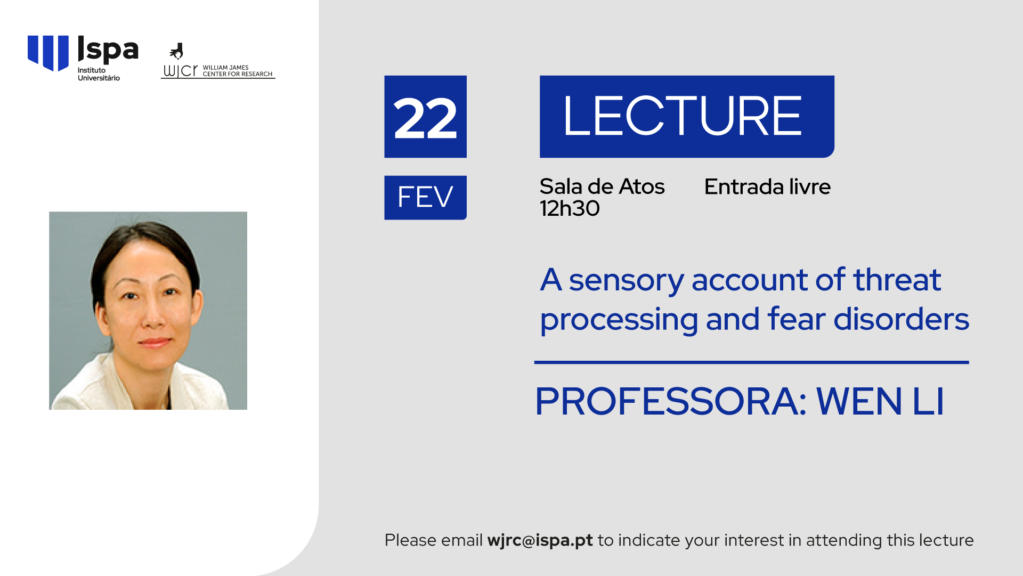A professora Wen Li (Department of Psychology and Program in Neuroscience – Florida State University, USA) vai estar no Ispa – Instituto Universitário no próximo dia 22 de fevereiro para ministrar a palesta A sensory account of threat processing and fear disorders.
Inscrições por e-mail: wjrc@ispa.pt
Note: Please email wjrc@ispa.pt to indicate your interest in attending this lecture.
Abstract:
The standard view of threat processing posits that initial threat encoding depends on amygdala input and operates in a “quick and dirty” manner. However, mounting evidence from my lab and others promotes a revision of this amygdala-centric view, highlighting the sensory cortex for its critical role in threat processing. In this talk, I will demonstrate that defying its long-assumed subservience to top-down (e.g., amygdalar) instruction, the sensory cortex independently performs smart (“fast and precise”) evaluation of environmental threat and drives network-wide threat responses. This faculty stems from mnemonic representations (of threat stored in the sensory cortex that are sensitive, specific, and adaptable. Such representations (characterized as “acquired associative representations”/AARs of threat) are products of experience-based sculpting of sensory coding networks (via ensemble pattern modification, tuning shift, disinhibition, and sparsification). Motivated by this sensory account and growing recognition of rich sensory anomalies in fear disorders (e.g., anxiety and PTSD), I further propose a sensory account for these disorders: fear disorders involve sensory cortical hyperreactivity, which produces excessive sensory output to overexcite the amygdala (thereby heightening threat response) and prefrontal cortex (thereby disrupting executive regulation), resulting in a vicious cycle of sensory-prefrontal-cortex-amygdala (SPA) pathology. To conclude, I will highlight work in the lab to weaken mnemonic threat representation and mitigate hyperactivity in the sensory cortex as a novel intervention for fear disorders.


